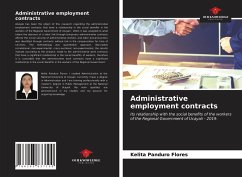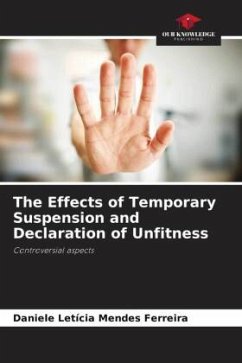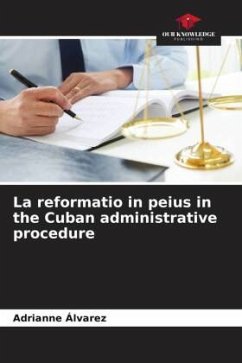
ECONOMIC-FINANCIAL BALANCE OF ADMINISTRATIVE CONTRACTS
An analysis of the criteria employed in the classification of currency and price risks
Versandkostenfrei!
Versandfertig in 6-10 Tagen
40,99 €
inkl. MwSt.

PAYBACK Punkte
20 °P sammeln!
The Brazilian legal system guarantees the intangibility of the financial clauses of government contracts. However, the right to recomposition of the economic-financial balance is conditioned to the classification of events according to their ordinariness or extraordinariness. In this context, it was observed that, in practice, there is a certain subjectivity in the classification of events. Thus, we sought to identify and analyze, by means of a qualitative approach, the criteria that have provided the basis for the processes of granting economic-financial rebalancing related to exchange variat...
The Brazilian legal system guarantees the intangibility of the financial clauses of government contracts. However, the right to recomposition of the economic-financial balance is conditioned to the classification of events according to their ordinariness or extraordinariness. In this context, it was observed that, in practice, there is a certain subjectivity in the classification of events. Thus, we sought to identify and analyze, by means of a qualitative approach, the criteria that have provided the basis for the processes of granting economic-financial rebalancing related to exchange variation and oscillation of input prices. In light of the study developed, the conclusion is that only one criterion has been identified, in each of the analysis categories, that can guarantee objectivity and uniformity to the processes of granting economic-financial rebalancing. From this perspective, one can see a scarcity of resources that allow an objective assessment of contractual risks. Therefore, this scenario reinforces the need to seek alternatives that overcome or mitigate the problems arising from the classification of events as ordinary and extraordinary.












